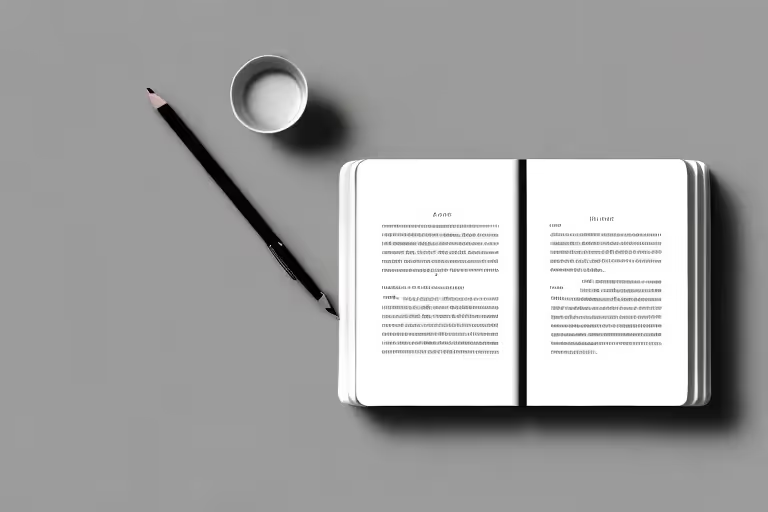In today's fast-paced and often chaotic world, finding moments of tranquility can be a challenge. Nowhere is this more evident than in our classrooms, where students are faced with a constant barrage of stimuli that can hinder their ability to focus and learn effectively. However, there is a powerful tool that can unlock a world of calm and harmony: music.
Understanding the Power of Music
Music has an incredible ability to touch our souls and evoke emotions. It's a universal language that has been used for centuries to express thoughts, feelings, and experiences that words alone cannot capture. Whether it's the haunting melody of a classical symphony or the infectious beat of a catchy pop song, music has the power to transport us to different emotional landscapes.
But beyond its artistic and cultural significance, there is a scientific basis for the impact music has on our brains. Research has shown that music can stimulate multiple areas of the brain, including those responsible for memory, attention, and emotion. When we listen to calming music, it activates the parasympathetic nervous system, which helps us relax and reduce stress levels. This, in turn, enhances our ability to concentrate and absorb information.
Imagine yourself sitting in a quiet room, trying to focus on a difficult task. Suddenly, a soothing melody starts playing in the background. You feel your muscles relax, your breathing slows down, and your mind becomes more receptive. This is the power of music at work.
The Science Behind Music and the Brain
When we listen to music, our brains release dopamine, a neurotransmitter associated with pleasure and reward. This surge of dopamine not only makes us feel good but also enhances our ability to learn and remember information. In fact, studies have shown that students who listen to music while studying perform better on tests compared to those who study in silence.
Furthermore, music has the unique ability to activate both hemispheres of the brain. The left hemisphere, responsible for logical and analytical thinking, is engaged when we listen to complex harmonies and intricate melodies. On the other hand, the right hemisphere, associated with creativity and emotion, is activated when we listen to music that resonates with our feelings.
It's no wonder that music has been used as a therapeutic tool for centuries. From ancient civilizations to modern-day healthcare settings, music therapy has been proven to reduce anxiety, alleviate pain, and improve overall well-being. So the next time you find yourself feeling stressed or overwhelmed, try immersing yourself in the soothing sounds of your favorite music.
How Music Influences Mood and Behavior
Have you ever noticed how a lively tune can instantly uplift your spirits and make you want to move? Well, the same principle applies in the classroom. By incorporating calming music, we can create an environment that promotes positive emotions and a sense of well-being. When students feel happy and at ease, they are more likely to engage actively in their learning and exhibit pro-social behaviors.
Music has the power to create a sense of community and connection. Whether it's singing together in a choir or dancing to a favorite song, music brings people together and fosters a sense of belonging. In educational settings, this can be particularly beneficial as it helps to build positive relationships between students and teachers.
Moreover, music can be a powerful tool for self-expression. For individuals who struggle to communicate their thoughts and emotions verbally, music provides an outlet for self-discovery and emotional release. Whether through writing lyrics, playing an instrument, or simply listening to music, individuals can find solace and a means of expressing themselves.
In conclusion, music is not just a form of entertainment or a means of artistic expression. It is a powerful force that can shape our emotions, influence our behavior, and enhance our cognitive abilities. So the next time you find yourself in need of a mood boost or a mental pick-me-up, turn to the power of music and let it work its magic.
The Role of Calming Music in Education
Now that we understand the power of music, let's explore how it can be harnessed to create a more conducive learning environment.
Enhancing Focus and Concentration
One of the greatest challenges educators face is capturing and maintaining students' attention. However, with the right choice of music, we can create a harmonious backdrop that helps minimize distractions and improve concentration. Calming melodies and rhythms can provide an anchor for students, allowing them to stay focused on the task at hand and immerse themselves fully in their studies.
Reducing Classroom Stress and Anxiety
Stress and anxiety are all too common among students, and they can have a profound impact on their learning and overall well-being. Calming music acts as a soothing balm for the mind, helping to alleviate stress and anxiety levels. By creating a peaceful atmosphere in the classroom, we can foster a sense of safety and security, enabling students to learn and grow without the burden of excessive worry.
Implementing Music in the Classroom
Now that we understand the numerous benefits of calming music, let's explore some practical ways to incorporate it into the classroom.
Choosing the Right Music
When selecting music for the classroom, it's important to keep in mind the purpose and context. Different activities require different types of music. For example, during independent work or quiet reading time, instrumental pieces with a slow tempo can enhance focus. On the other hand, group discussions or creative activities may benefit from more uplifting and inspiring melodies. By tailoring our music choices to the specific needs of our students, we can create an environment that supports their learning and emotional well-being.
Setting the Tone for Different Activities
Music has the power to set the stage and create a specific atmosphere. By utilizing music as a tool to transition between activities, we can effectively signal to students that it's time to shift their focus. A calm and soothing piece can prepare them for a quiet reading session, while an energetic and upbeat selection can motivate them for an engaging group discussion. By establishing clear musical cues, we can help students navigate seamlessly through the various tasks and foster a sense of structure and organization.
Case Studies of Music in Schools
Now that we have explored the theoretical foundations of music in the classroom, let's delve into real-world examples of the transformative power of calming music.
Success Stories from Around the World
In Finland, renowned for its innovative education system, many schools have implemented calming music as part of their daily routine. Teachers and students alike have reported a positive impact on student well-being, as well as an improvement in focus and academic performance. Similarly, in Australia, a study found that incorporating music into the curriculum led to a decrease in stress levels and an increase in student engagement. These success stories serve as inspiring reminders of the potential of music in education.
The Impact on Student Performance and Well-being
A growing body of research suggests that the benefits of calming music extend beyond the classroom walls. Studies have shown that regular exposure to calming music can enhance cognitive skills, such as memory and problem-solving, and even improve sleep quality. Additionally, music has been shown to strengthen social connections and foster a sense of belonging among students. By prioritizing the well-being of our students, we are not only setting them up for academic success but also helping them thrive in all aspects of their lives.
Potential Challenges and Solutions
While the benefits of calming music in the classroom are clear, it's important to acknowledge and address potential challenges that may arise.
Addressing Noise Distractions
One concern often raised is the potential for music to create additional noise distractions. To mitigate this, it's important to strike a balance between the volume of the music and the overall ambient noise level in the classroom. By using instrumental tracks or calming vocals, we can ensure that the music complements the learning environment rather than competes with it.
Balancing Individual Preferences and Needs
Just as our students have diverse learning styles, they also have varying preferences when it comes to music. While finding a middle ground may seem challenging, it's vital to engage students in the decision-making process. Offering options and actively seeking feedback can help create a sense of ownership and empowerment among students, fostering a supportive and inclusive classroom environment.
In conclusion, the benefits of calming music in the classroom are undeniable. By harnessing the power of music, we can create an environment that promotes focus, reduces stress, and enhances student well-being. It's a simple yet powerful tool that can transform the learning experience and unlock the full potential of our students.
Unlock the transformative power of music in your classroom with the Aura Health App. Designed with educators in mind, the app offers a curated collection of calming music specifically tailored to enhance focus and concentration. Discover a new world of harmony and tranquility with Aura Health - your students will thank you.
Aura is Your All In One App for Meditation, Mindfulness Wellbeing
Find peace every day with one app for your whole well-being. There is no one-size-fits-all solution to mental well-being. Aura is the first all-in-one wellness app that learns how to best help you. Discover an endless library of expert-created tracks for your well-being, all taught by the world’s best coaches, therapists, and storytellers. With Aura's personalized recommendations, you can find peace every morning, day and night.



.webp)






.avif)

%20(1).avif)


.avif)
.avif)
.webp)


.avif)


















































































































.avif)

















.svg)









